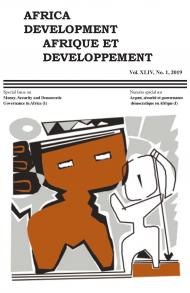Article 29p.
This article sets out to provide a comparative analysis of the effect of tax administration reform on tax performance and quasi-voluntary compliance in Tanzania and Uganda. It aims to reveal two findings via the comparison. Empirically, it is claimed that Tanzania achieved better outcomes in terms of both tax performance and quasi-voluntary compliance in general compared to Uganda. Despite the introduction of similar tax administration reform, the tax administrations of Tanzania and Uganda have developed quite differently. Tanzania’s tax administration effectively changed the strategic and normative factors that enhance quasi-voluntary compliance, whereas Uganda’s tax reforms have been stuck in a muddle. Theoretically, it is proposed that tax performance and quasi-voluntary compliance are interconnected. Quasivoluntary compliance is necessary for achieving high tax performance in an efficient and sustainable manner. High tax performance from competent and fair tax administration improves taxpayers’ willingness to comply voluntarily. Tanzania’s success in tax administration reform led to positive prospects for directing and cementing the processes of state-building with the maturity of state capacity and the concomitant advancement of state–society relations.








